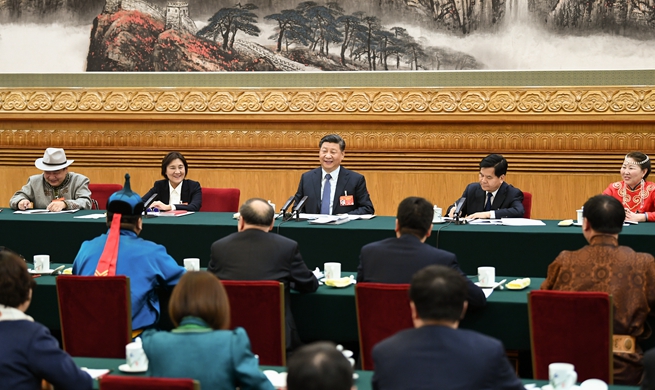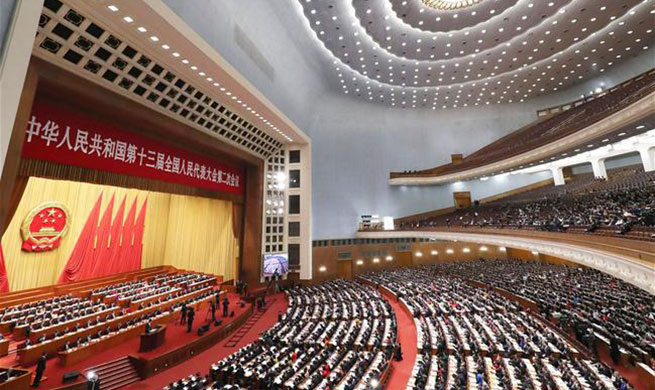OTTAWA, March 8 (Xinhua)-- The Federal Court of Canada on Friday dismissed a request by SNC-Lavalin to review a federal prosecutor's decision declining to settle criminal charges against the company out of court.
"The law is clear that prosecutorial discretion is not subject to judicial review, except for abuse of process," Federal Court Justice Catherine Kane said in her ruling Friday.
The decision at issue whether to invite an organization to enter into negotiations for a remediation agreement clearly falls within the ambit of prosecutorial discretion and the nature of decisions that prosecutors are regularly called to make in criminal proceedings, she added.
The Montreal-based engineering giant SNC-Lavalin faces accusations it paid bribes to obtain government business in Libya -- a criminal case that has prompted a political earthquake for Trudeau government.
The company made an unprecedented request for judicial review of a federal prosecutor's decision last September to proceed with charges of fraud and corruption.
The federal prosecution office asked the Federal Court to dismiss the company's request for judicial review. Justice Kane conducted a five-hour hearing on the matter last month.
The prosecutor's decision has been at the heart of a political dispute that has shaken Canada, resulted in the resignations of two ministers of Trudeau government and his principal secretary, and led to dramatic hearings at the House of Commons justice committee after senior officials were reportedly alleged to pressure then attorney general Jody Wilson-Raybould between September and December Last year to help the company avoid prosecution.
Under a 2018 federal law, prosecutors may negotiate a deferred prosecution agreement with corporate offenders. In return for a statement of wrongdoing, a fine and terms intended to ensure good conduct in the future, a company is permitted to settle out of court.
However, Kathleen Roussel, director of public prosecutions, declined to negotiate a deferred prosecution agreement, also known as a remediation last September.
Then attorney-general Jody Wilson-Raybould had the legal authority to issue a public directive to Roussel to negotiate a remediation agreement, but she refused to do so.
Last month, Wilson-Raybould told the House of Commons Justice Committee that she came under relentless pressure from the Prime Minister's Office and other federal officials to ensure the company was invited to negotiate a remediation agreement.
Prime Minister Justin Trudeau and his former principal secretary Gerald Butts refuted the notion any inappropriate political pressure against Wilson-Raybould.
In its submission last October to the Federal Court, the company said while the public prosecutor has discretion to decide whether to open negotiations on a remediation agreement, this discretion "is not unfettered and must be exercised reasonably" under the law.
The company said it provided the prosecutor's office with information showing the objectives of the remediation provisions were "easily met," including details of SNC-Lavalin's efforts to implement a world-class ethics and compliance program, as well as the complete turnover of the company's senior management and board of directors.
It also said the "negative impact of the ongoing uncertainty related to the charges" on its business.
In a response filed last January with the court, the director of prosecutions said SNC-Lavalin's argument is "bereft of any possibility of success and should be struck."
While SNC-Lavalin has the right to be assumed innocent and to a fair trial, it has "no right or entitlement" under common or criminal law to be invited to negotiate a remediation agreement, the director said.













